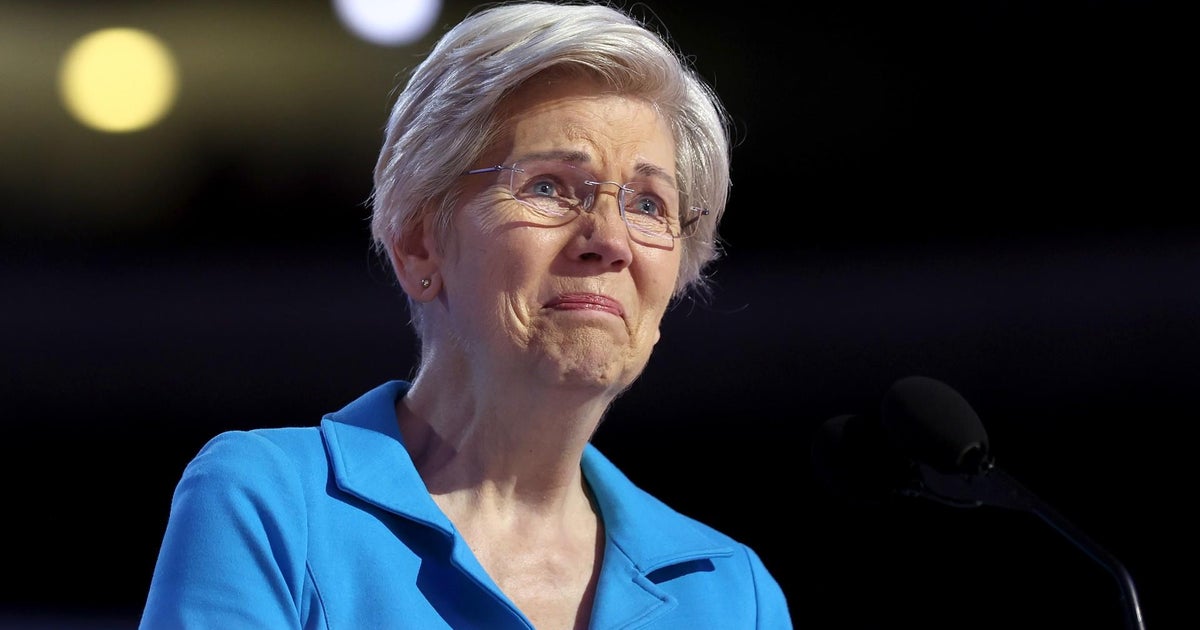CBS News
Biden administration announces $750 million investment in North Carolina chipmaker Wolfspeed

The Biden-Harris administration announced plans Tuesday to provide up to $750 million in direct funding to semiconductor developer and manufacturer Wolfspeed. The money will be used to support the company’s new silicon carbide factory in North Carolina that makes the wafers used in advanced computer chips and its factory in Marcy, New York.
In addition to the government grant, a group of investment funds led by Apollo, The Baupost Group, Fidelity Management & Research Company and Capital Group plan to provide an additional $750 million to Wolfspeed, the company said. Wolfspeed also expects to receive $1 billion from an advanced manufacturing tax credit, meaning the company in total will have access of up to $2.5 billion.
Wolfspeed stock surged Tuesday on the announcement of the combined $1.5 billion in funding. Shares were up 3 points, or 30%, as of noon ET.
Wolfspeed’s use of silicon carbide enables the computer chips used in electric vehicles and other advanced technologies to be more efficient. The North Carolina-based company’s two projects are estimated to create 2,000 manufacturing jobs as part of a more than $6 billion expansion plan.
“Artificial intelligence, electric vehicles, and clean energy are all technologies that will define the 21st century, and thanks to proposed investments in companies like Wolfspeed, the Biden-Harris administration is taking a meaningful step towards reigniting U.S. manufacturing of the chips that underpin these important technologies,” Commerce Secretary Gina Raimondo said in a statement.
The new Wolfspeed facility in Siler City could be a critical symbol in this year’s election, as it opened earlier this year in a swing state county that is undergoing rapid economic expansion in large part due to incentives provided by the Biden-Harris administration.
Vice President Kamala Harris, the Democratic nominee, is making the case to voters that the administration’s mix of incentives are increasing factory work, while former President Donald Trump, the Republican nominee, says the threat of broad tariffs will cause overseas factories to relocate in the United States.
In 2023, President Joe Biden spoke at Wolfspeed to promote his economic agenda, saying it would help the United States outcompete China. Trump narrowly won North Carolina during the 2020 presidential election and has talked about bringing back the state’s furniture manufacturing sector.
The Biden administration helped shepherd the 2022 CHIPS and Science Act through Congress amid concern after the pandemic that the loss of access to chips made in Asia could plunge the U.S. economy into recession. Lawmakers at the time expressed concern about efforts by China to control Taiwan, which accounts for more than 90% of advanced computer chip production.
The Biden-Harris administration’s argument is that the government support encourages additional private investments, a case that appears to apply to Wolfspeed.
Wolfspeed CEO Gregg Lowe told The Associated Press that the United States currently produces 70% of the world’s silicon carbide — and that the investments will help the country preserve its lead as China ramps up efforts in the sector.
Lowe said “we’re very happy with this grant” and that the Commerce Department staff awarding funds from the CHIPS Act was “terrific.”
CBS News
Why the alleged UnitedHealthcare CEO shooter is facing terrorism charge

Watch CBS News
Be the first to know
Get browser notifications for breaking news, live events, and exclusive reporting.
CBS News
Police say “combination of factors” led student to carry out Wisconsin school shooting

Watch CBS News
Be the first to know
Get browser notifications for breaking news, live events, and exclusive reporting.
CBS News
Sen. Elizabeth Warren pushes bill to make it easier and cheaper to file for bankruptcy

Continuing a decades-long effort to change the nation’s bankruptcy system, Sen. Elizabeth Warren plans to propose legislation on Wednesday aimed at making the process less costly and complicated for the hundreds of thousands of individuals who seek court-sanctioned relief from debt each year.
“People typically file for bankruptcy for one of three reasons: a job loss, a medical problem or a family breakup — and when they do, they’re faced with an expensive and complicated system,” the Massachusetts Democrat said in a statement in reintroducing the bill, known as the “Consumer Bankruptcy Reform Act.”
“My bill would simplify and modernize the consumer bankruptcy system to make it easier and less expensive for people to get relief,” Warren added.
Bankruptcies rising
The measure comes as personal bankruptcies compared this year with 2023 levels. More than 400,000 Americans have filed for bankruptcy in 2024, although that figure is far below their pre-pandemic average of about 750,000 personal bankruptcy filings a year.
Warren said her bill would help families “avoid eviction, keep homes and cars and discharge local government fines.” It would also create a repayment plan for unsecured debt, including student loans, as well as eliminate a restriction that bars people from shedding private and public student debt in bankruptcy, like other types of consumer loans.
Rep. Nadler, a New York Democrat, and Rep. Pramila Jayapal, a Democrat from Washington, are co-leading a House version of the bill, while Rhode Island Democrat Sheldon Whitehouse will cosponsor the measure in the Senate. The bill has been endorsed by a wide range of groups including the AFL-CIO, a labor union, and consumer advocacy groups Public Citizen and National Consumer Law Center.
“Big corporate debtors continue to reap the rewards of our broken bankruptcy system while everyday Rhode Islanders facing financial hardship struggle to obtain basic relief. I’m pleased to support this bill that makes the consumer bankruptcy system fairer and easier to access for those facing crushing personal debt,” Whitehouse said in a statement.
Among other things, Warren’s proposal would provide two routes for individuals to file for bankruptcy:
- No-payment discharge. For low-income filers, this option would wipe out unsecured debt other than child support or debts incurred by fraud.
- Debt-specific plans. This would let individuals resolve debts specific to their financial situation, pausing debt collection efforts paused while filer remains current on loans.
The change would be a welcome one, according to advocates, who say the current bankruptcy rules can steer people in the wrong direction.
It costs about $1,500 to file Chapter 7, and most attorneys require that their fees be paid upfront. Chapter 7 is a liquidation bankruptcy, where the filer’s nonexempt property and assets — possessions not protected by bankruptcy — are turned over to a trustee, and debt is discharged in three to six months.
With a Chapter 13 bankruptcy, payments can be spread out, but the overall costs for filers is significantly higher, running an average of $4,500. Only about a third of people who file Chapter 13 make it to the end and have their debts discharged, research shows.







